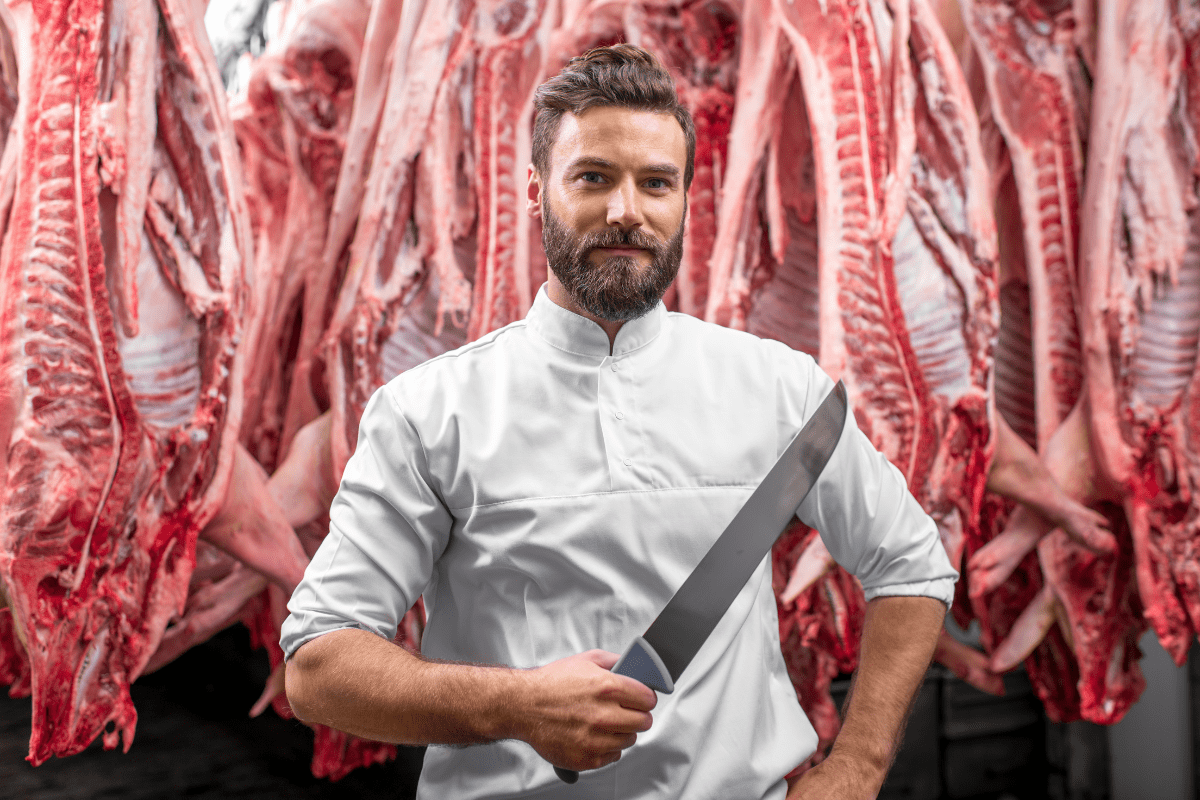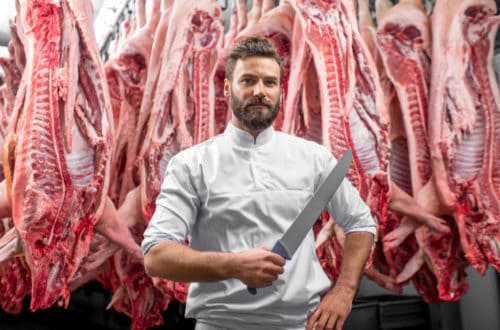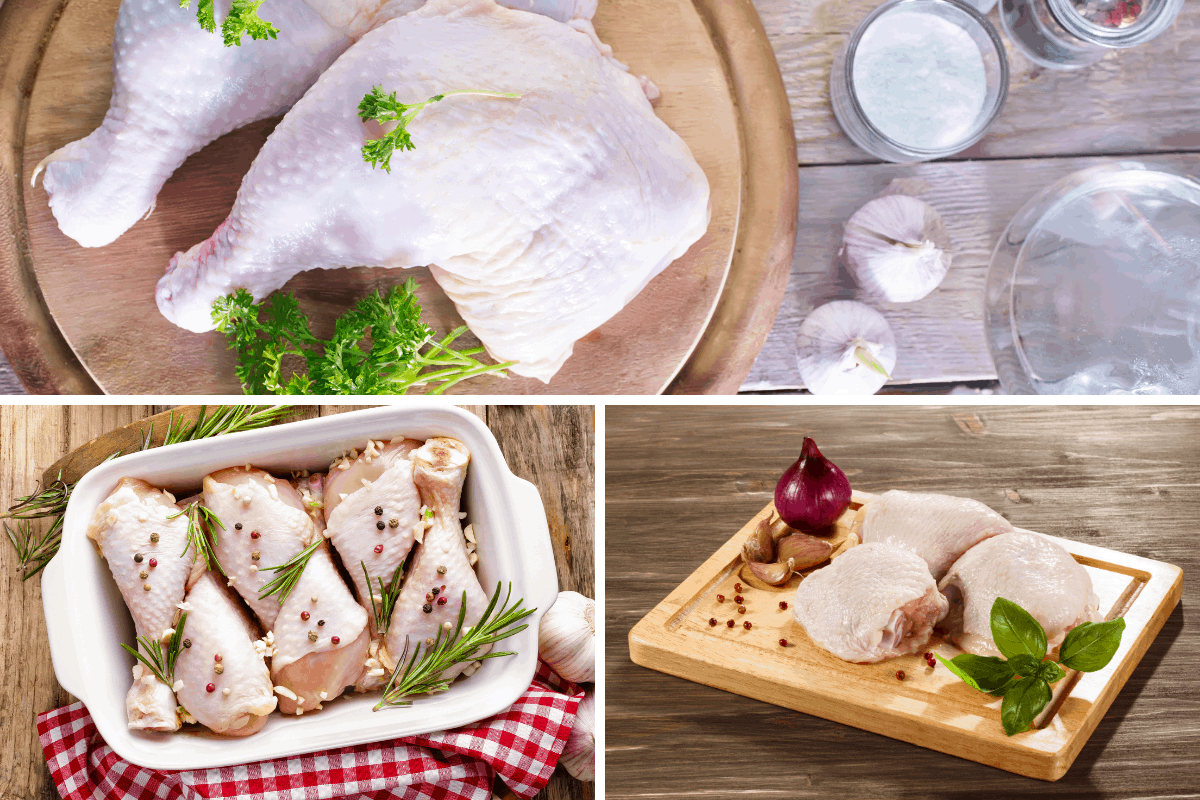If you have decided that you would like to buy your meat from an independent butcher shop, meat market or farm shop, then you may we wondering what attributes make a good one to use.
In this article we are going to talk about the different things that you should be looking at when deciding if the butcher is worthy of your custom, or if you should avoid and move on to the next.
So how do you choose a good butcher? A good butcher will provide a clean store with an appealing display. The butcher will be knowledgeable about the meats they are selling, and will source from local farmers. The meat will be of a high quality grade, and care will have been taken in the handling and preparation. They will likely make their own sausages, burgers, pies etc from family owned recipes.
So now you have brief outline of what to expect from a good butcher, let’s look deeper into how you can assess if your local butcher has these requirements.
First Impressions Count
From the moment you arrive outside the store that you are considering, you want to be paying attention to all the little details that will help you decide if the owner takes care of their business.
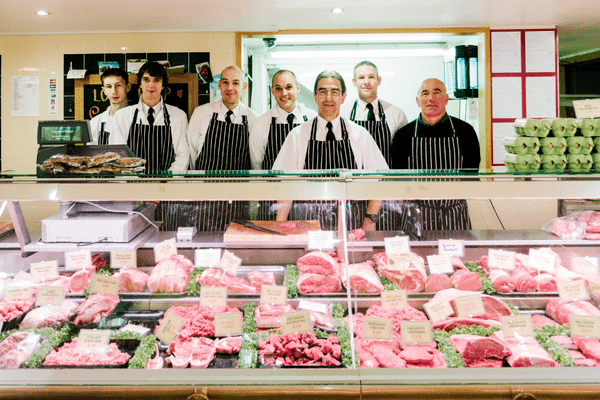
Store Exterior
Is the exterior of the store clean and well presented. Remember, this is the first area that you see as a new customer and so any quality business will want to create a good impression.
If the exterior of the store looks dirty or run down, flaking paint, litter build up, overflowing bins, damaged signs, weeds growing etc, then you should not even consider going any further. This does not bode well for what goes on inside the store.
Store Interior
If you have made it to the inside of the store, do the same checks as for the exterior.
Is the inside decor clean and in good repair. This is more important than the exterior as whatever is going on inside the store has the potential to contaminate your meat.
Butchering is a messy job, however the store should be spotless in non work areas, and work areas themselves, should be organised and tidy.
Things to look out for:
- Are the walls and surfaces spotlessly clean? – No flaking paint, no cobwebs in corners, no dried blood on the walls, no dirty floors.
- Are the Meat Cabinets Clean – No smeared glass, no cracked glass, no broken display light, no rusty edges, no broken display trays, no dusty or dirty tray dividers.
- Tidy Work Areas – Are the working areas being kept organised and tidy, no disorganized shelves, no cluttered tables or work surfaces, no overflowing sink areas, no messy checkout areas.
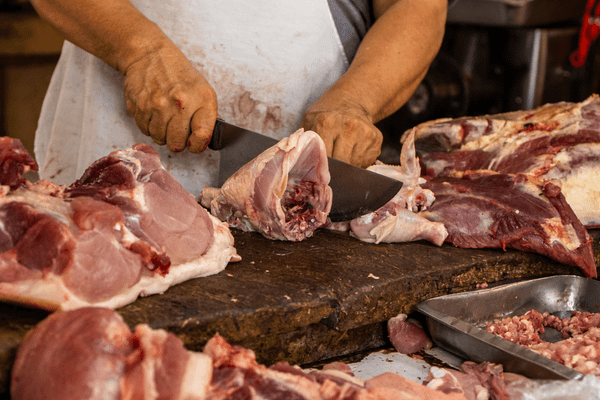
A good business owner will always look at things from a customers eye, and will deal with any areas that may give the customer cause for concern. They will want your shopping experience to be a pleasurable one, and will do everything they can to portray a clean and professional environment.
Now do take into consideration that this is a place of work, and butchering is a messy job. Seeing fresh meat on the block, a tray with bones and scraps, a bit of fresh blood on an apron etc are all just parts of a working day. Only be concerned if these things look unsanitary, or a health issue.
Staff Cleanliness
This is probably one of the main points that you should focus on when deciding whether to use a business or not. After first establishing that the premises look clean, it’s time to look at the staff.
Things a good butcher will ensure their staff have at all times:
- Clean clothing and uniform – some fresh surface blood on an apron is normal – dried on brown blood is not!
- Clean and Short Finger Nails – Finger nails can harbor bacteria, and so should be kept clean and short at all times. Nail varnish is a definite no-no as it can flake off and contaminate the meat. The same with false nails.
- Clean and Tidy Hair – Hair should be clean. Long hair should be tied back, and preferably under a hair net or hat.
- Covered Cuts or Sores – Any open wound is another potential health hazard, and so should be covered with a waterproof dressing / band aid.
If the staff in the store you have just entered are not ensuring their personal cleanliness is taken care of, then it doesn’t hold out much hope that they care about other areas of cleanliness within the store. Move on and find a store that does pride itself on good hygiene standards.
Freshness of Meat
Once you established that there are no areas of concern in the cleanliness department, it’s time to turn your attention to the meat. After all, that is why you came here in the first place.
When talking about the freshness of meat, we don’t necessarily mean that it is only a day or two old. Some beef can be hung for over a month before it is cut for the cabinet, however this will still look fresh and appealing once it has been trimmed and cut for the display.
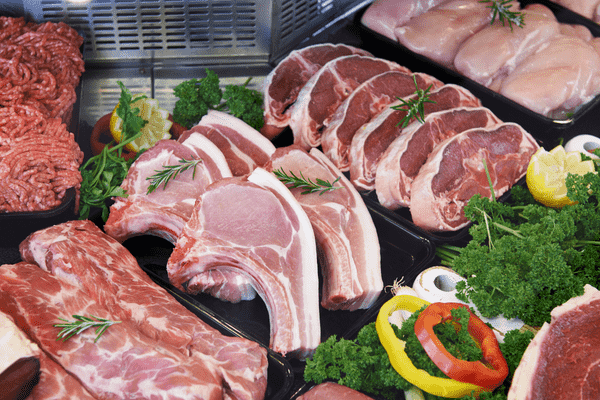
Things to look out for in a good meat display:
- Fresh and Healthy Looking – The meat should look fresh and inviting. Avoid meat that is drying at the edges or is brown / grey in color
- Moist, not Sticky or Slimy – The meat should have a moist sheen. If the meat looks slimy or sticky then it is past its best and should not be bought.
- Well Presented Meat– Is the meat on display arranged nicely presented with some care and attention to detail. Avoid meat that has just been thrown into the cabinet with no care, or is sitting in a pool of blood.
- Cut With Care – Does the meat look as though it has been cut with precision and care, or does it look like it has been hacked to bits with no care and attention?
Quality of Meat
If you are impressed by all that you have seen in the butchers store so far, then it’s time to find out a little more about the quality of the meat being offered. Good butchers are knowledgeable about all aspects of the meat they sell, and will have no problems answering all the questions you have.
Some of the questions you should ask your butcher (and they should be able to answer!)
- Quality / Grade of the meat – Meat is reared to different quality standards, and so you want to establish that your butcher is carrying a good quality. For instance, the beef grade that your butcher sells should be Choice or Prime to ensure it will eat well.
- Ethically Reared – Again, there are varying degrees of acceptable rearing standards within the meat insdustry, not all of them particularly humane. You will want to ensure that your butcher cares about the welfare of the animals that are being sold in their store. they should be able to answer questions about the types of feed given to the animals, as well as the use of vaccines or antibiotics in the animals.
- Locally Sourced – Having a butcher that sources their meat from local farmers not only helps the local community, but also improves the quality of the meat. Animals that are taken long distances to slaughter, are often stressed or injured on the journey which leads to lesser quality meat.
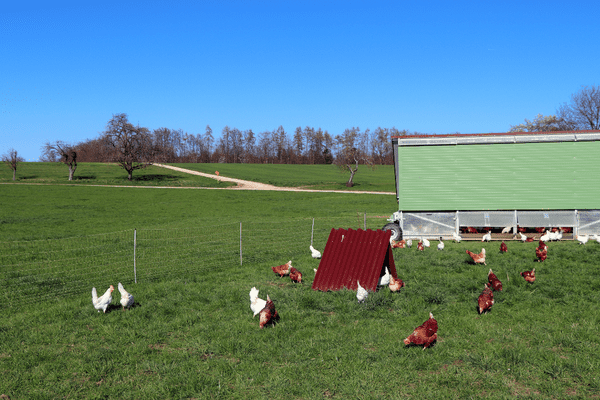
The Butcher Themselves
Once you are happy with everything you have seen so far, it’s time to evaluate the butcher themselves.
You will already have had some interaction with the butcher in the course of asking your questions about the meat. How did you feel the butcher responded to you during that interaction?
A butcher that values their customers will be willing to answer all, and every question you have to ask.
Obviously if they have other customers waiting, it would be polite for you to let them get served first, if you felt you may be some time. This however is a good thing, as it will allow you to see how the butcher treats their customers, and the kinds of things that other customers may be asking.
Developing a relationship with the butcher is a very personal thing, and one that may last many years. Therefore you need to feel that you can trust them, and have a mutual respect for each other.
It doesn’t matter how clean the shop looks or how great the meat quality is. If the butcher selling the meat cannot give you the time of day to answer your questions, then move on to one that will!
Does The Meat Meet Expectations?
Once you have decided that everything checks out and you may have found a butcher you can use, the final test is in the eating.
Having purchased some meat, and taken advice from the butcher on how best to prepare it, go home and cook it. See how it eats.
Did it meet your expectations? If it did, well done, you’ve found yourself a butcher.
Don’t Give Up After One Bad Experience
If you were not happy with the meat for any reason, go back to the butcher.
Explain to them know how you cooked it, and why it didn’t live up to your expectations. Was it too fatty, too tough, too dry etc.
Your new butcher will be able to tell you why they feel the meat didn’t work out for you, and will have suggestions on how to put it right.
Maybe it was the cooking method, maybe it was the wrong cut for your taste etc.
Don’t be afraid to tell the butcher when something is wrong, they will be happy to put things right and you will learn some things along the way too.
However
Don’t Be Afraid to Move On
If the butcher has no interest in the fact that you were disappointed, or if after trying another cut of meat you still feel that the quality is still not good enough, then move on to another establishment.
You WILL find the perfect fit out there, so don’t settle for mediocre meat or service.
